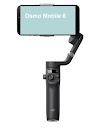If you're a Bitcoin beginner and want to start mining, we're here for you!
Before we begin, a word of advice - most of Bitcoin users don`t mine! There are 3 major ways to obtain Bitcoins:- buying at an exchange
- getting Bitcoins for products or services instead of your local currency
- mining
Bitcoin is called 'the web gold', so naturally, the way of creating Bitcoins is called 'mining'. Miners discover the new Bitcoins much like gold is produced from the Earth. Also like gold, Bitcoins are a finite number - 21 million Bitcoins will ever exist. Currently there are around 12 million discovered in the world, but that number changes every 10 minutes.
We say that miners discover the new Bitcoins, but the basis of what they do is to approve transactions in the blockchain of Bitcoin users. A Bitcoin transaction is not fully complete until confirmed by a miner, hence the need for people who put in their computing power for the purpose of approving these transactions. As a reward they get Bitcoins every time a transaction is approved. The need of these approvals comes from the fact that there's no central entity (Bank) in the world of Bitcoins which can verify that a certain transaction is legit, e.g. the user doing the transaction hasn't already spent these Bitcoins on something else (double-spending). To prevent cases of double-spending, miners have to compare the Bitcoins involved in the transaction with the Bitcoin this person had previously and all their previous transactions. When that's done, they need to add a block on the blockchain containing that newly approved transaction. As Bitcoin transactions on the blockchain are secured with cryptokeys, essentially the miner's way of approving the transactions involves computing cryptological puzzles.
As more and more Bitcoins are discovered, the difficulty of discovering the next block on the chain increases. When Bitcoin fist appeared, it was easy to generate them and an ordinary computer was enough in terms of hardware power for the task, Nowadays a PC is hardly enough to do any actual work, that's why Bitcoin rookies or small-time miners join mining pools, where people share their hardware power and subsequently share the profit they make. I'll tell you more about pools in my next article.
Hardware requirements
To start mining. you need to get the appropriate hardware. As I mentioned, PCs or laptops won't cut it in today's world of Bitcoin competition. Most users get ASICs (application specific integrated circuits). ASICs are machines specifically designed for the task of mining. Their prices and productivity vary largely from machines under $100 to machines over $3000. Their productivity is measured in Th/s (terahash per second).
I've gathered below the top 3 ASICs currently on the market. There are many other options, which you can purchase on Ebay, Amazon etc.
Antminer S7
- The advertised capacity of the S7 is mid-range, 13.5 Th/s. It's sold for $470 - $700 on Ebay, some specimens include CPU but generally the miner comes without one. The expected Bitcoins generated per month is 0.1645
Antminer S9
- The advertised capacity of the S9 is high-end, 4,73 Th/s. It's sold for $3000 - $5000 on Ebay, some specimens include CPU but generally the miner comes without one. The expected Bitcoins generated per month is 0.3603
Avalon 6
- The advertised capacity of the S9 is high-end, 3,5 Th/s. It's sold for $305 - $425 on Ebay, some specimens include CPU but generally the miner comes without one. The expected Bitcoins generated per month is 0.1232
Software requirements
Once you've received your bitcoin mining hardware, you'll need to download a special program used for Bitcoin mining. There are many programs out there that can be used for Bitcoin mining, but the two most popular are CGminer and BFGminer which are command line programs.If you prefer the ease of use that comes with a GUI, you might want to try EasyMiner which is a click and go windows/Linux/Android program. GUIMiner is another GUI-based option.
Bitcoin wallet
Once you've started mining, you'll need to keep the Bitcoins you win in a wallet. This can be a soft wallet, used on the web or as a separate application where you're identified by your unique address (not a name or any characteristic linking the wallet to you as a person). A good soft wallet option is Copay.
There's the option for a hardware wallet as well. You can research Ledger Nano S if you're interested.
Are you considering mining your own Bitcoins? Comment below!









0 Comments